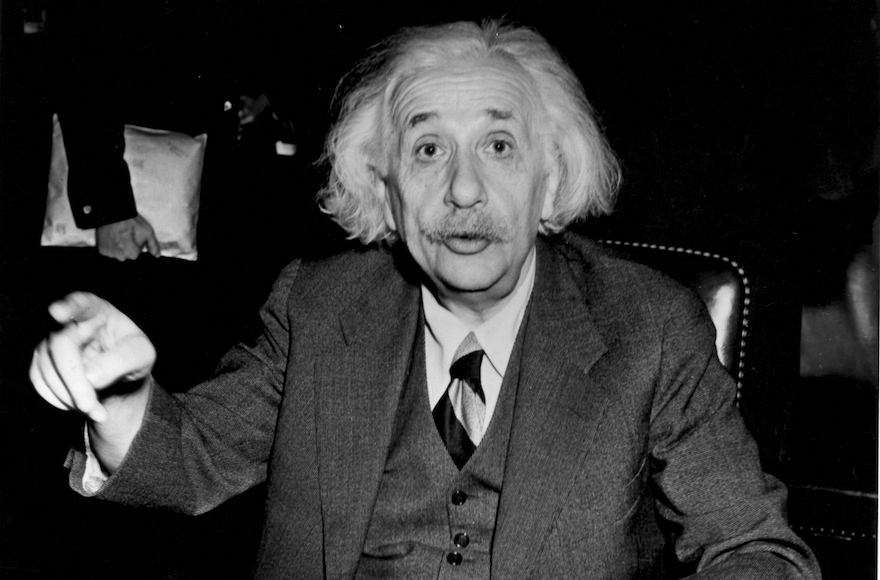BERLIN (JTA) — The German branch of Friends of Hebrew University is campaigning to make a walk-through model of Albert Einstein’s brain the centerpiece of a Frankfurt museum’s planned exhibit.
The Senckenberg Museum for Natural Sciences is seeking public input for a modernization and expansion that will include a giant brain that visitors can walk through.
Visitors to the museum’s website can vote through June 29 among the brains of Einstein, primatologist Jane Goodall and German soccer star Karl-Heinz “Charly” Körbel. Voters can also nominate themselves and have their own brains scanned for the exhibit.
The German branch of Friends of Hebrew University has jumped into the fray, spreading the word and drumming up votes for the iconic German-Jewish physicist, a founder of both the university and its fundraising arm.
The Senckenberg Society for Natural Sciences was founded in 1817, and its largest museum is nearly as old, a museum spokeswoman said. She added that she knew of no other “walk-in” brain sculptures. There is a walk-in heart in the children’s museum in the German city of Fulda, and a giant heart at The Franklin Institute Science Museum in Philadelphia.
The project is a brainchild of the Hertie Foundation, a museum sponsor, and the museum’s general director, Volker Mosbrugger.
In real life, Einstein’s brain was at the center of bizarre chapter in pathology. After his death on April 18, 1955, the Princeton, New Jersey pathologist attending his body stole the brain in the interest of scientific research. Einstein’s son eventually gave permission for the brain to be sent to Philadelphia, where it was sliced into pieces and preserved.
For decades, the pathologist took the brain in a glass jar with him on travels around the country, and sent pieces of the brain to researchers all over the world, according to Philadelphia’s Mütter Museum, where some slices are on display.

Help ensure Jewish news remains accessible to all. Your donation to the Jewish Telegraphic Agency powers the trusted journalism that has connected Jewish communities worldwide for more than 100 years. With your help, JTA can continue to deliver vital news and insights. Donate today.






